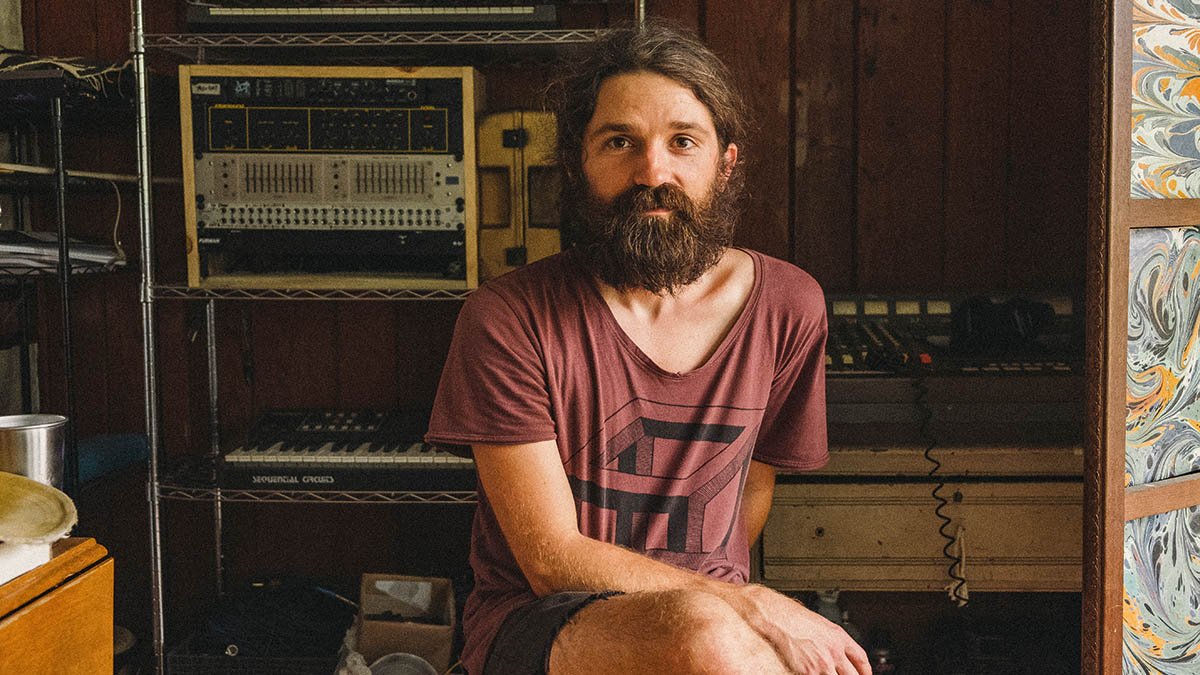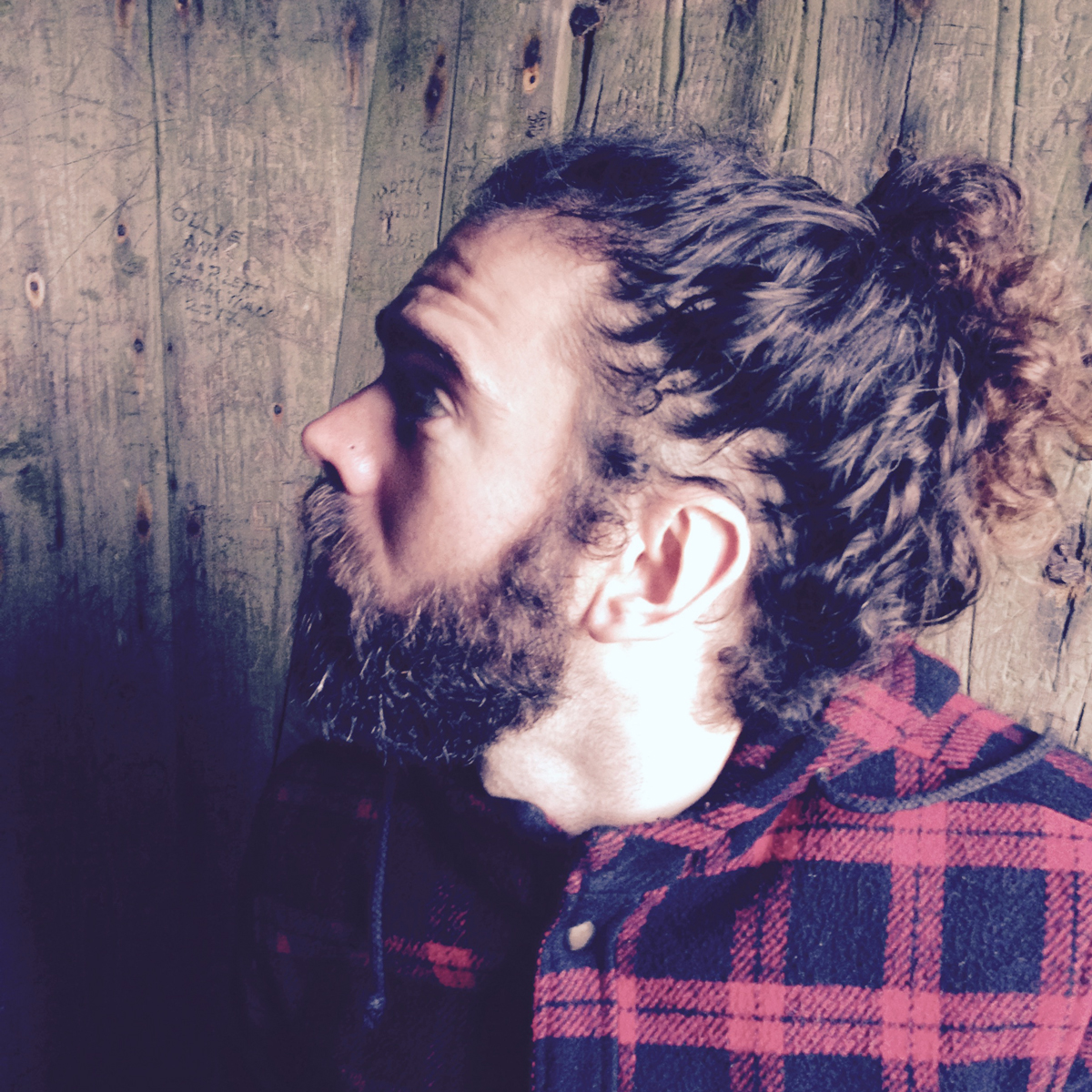“Music saved me from a lonely existence, and now it’s teaching me how to relate to others and how to relate to myself”: Mat Davidson, aka Twain, found belonging with a guitar in his hand
Mat Davidson has played with Big Thief, The Low Anthem and more, but under his own steam as Twain he is chasing new horizons – with the help of the “Honda Civic” of acoustic guitars

Virginia-born Mat Davidson, who goes by the name Twain for his solo work, has a long history of playing with acts such as Big Thief, The Low Anthem and The Deslondes, among others.
For Noon – his most recent solo album – he puts in the work and plays guitar, keys, strings and wind instruments. Percussion and bass guitar are performed by Austin Vaughn and Ken Woodward, so overall it’s a simple setup.
“I’ve been making albums for a long time, so some practices have been well established,” Mat says. “We play live together, with no computers, only a few takes and no splicing of takes.”
Itinerant Instrument
This minimalist style links with Mat’s view of the guitar, an instrument he began exploring in his teens. “I remember learning to play Boy Named Sue [Shel Silverstein], and Love In Vain [Robert Johnson],” he says. “Songs opened up a whole inner world for me, and from then on I was always carrying a guitar or some stringed instrument. [The pull was] this feeling of having a tool and travelling with it.
“In high school my thing was to board municipal buses at random and get lost. Or I’d hike for miles and drop down into unfamiliar towns. I’d wander around and play and meet interesting people. Having an instrument gave me a sense of belonging.”
Sweet Pickings
Mat’s guitar playing is graceful and engaging, switching from flat-picking to fingerstyle and back with ease.
“I often think about how Louis Armstrong would compare musical notes to fruit on a tree – just reach out and pluck them,” he says.
Get The Pick Newsletter
All the latest guitar news, interviews, lessons, reviews, deals and more, direct to your inbox!
“It’s like that for me, except it often feels like I suddenly have no hands, or that I have a shifting numbers of fingers. I’ve been playing music for two decades and still these challenges crop up. I guess part of my style is locating the grace within any present state, no matter how hard it is to grasp the fruit.”
One & All
Mat has played in some influential outfits over the course of his career. But with his own music, he’ll sometimes play on his own and sometimes play with a full band. The variety works well for him.
“I love and need both,” he says. “Music saved me from a lonely existence and now it’s teaching me how to relate to others and how to relate to myself. Life has gently and not so gently pushed me in and out of bands. It used to be confusing and frustrating – now I see it as a blessing. I love to share energy with others and search within, and I feel lucky to get to travel between those two poles.”
Constant Companion
The frequency of travel is literal as well as figurative for Mat, so it’s hardly surprising to learn he keeps his instrument list quite short. “My Twain touring guitar right now is a Yamaha FG-150 with a Sunrise pickup – that’s like a Honda Civic,” he says. “But the special guitar is probably my pedal steel, a ’90s Carter Starter that my friend Tommy Bohlen gave to me.
“It’s been passed down by a lot of players and it feels a bit mystical. I’ve done a lot of work on it: replacing parts as they break, machining new parts when replacements don’t exist… Doing that work taught me so much about the instrument. It’s also taken me to some incredible places and I’ve used it on some amazing records.”
Sacred Tools
While it’s clear that Mat’s mind leans towards the practical when it comes to his instruments, he also delves into the intangible when describing them.
“Instruments are tools, definitely,” he says. “But I do consider tools to be sacred objects. Most of my cherished possessions are tools of some sort: a chisel set that belonged to my dad; a mallet that my grandpa made on his lathe. I think a bit of the worker’s spirit lives in tools, which is one thing that makes guitars so interesting.”
- Noon is out now via Keeled Scales.
Glenn Kimpton is a freelance writer based in the west of England. His interest in English folk music came through players like Chris Wood and Martin Carthy, who also steered him towards alternate guitar tunings. From there, the solo acoustic instrumental genre, sometimes called American Primitive, became more important, with guitarists like Jack Rose, Glenn Jones and Robbie Basho eventually giving way to more contemporary players like William Tyler and Nick Jonah Davis. Most recently, Glenn has focused on a more improvised and experimental side to solo acoustic playing, both through his writing and his own music, with players like Bill Orcutt and Tashi Dorji being particularly significant.
“Even the thought that Clapton might have seen a few seconds of my video feels surreal. But I’m truly honored”: Eric Clapton names Japanese neo-soul guitarist as one to watch
“You better be ready to prove it’s something you can do”: Giacomo Turra got exposed – but real guitar virtuosos are being wrongly accused of fakery, too











